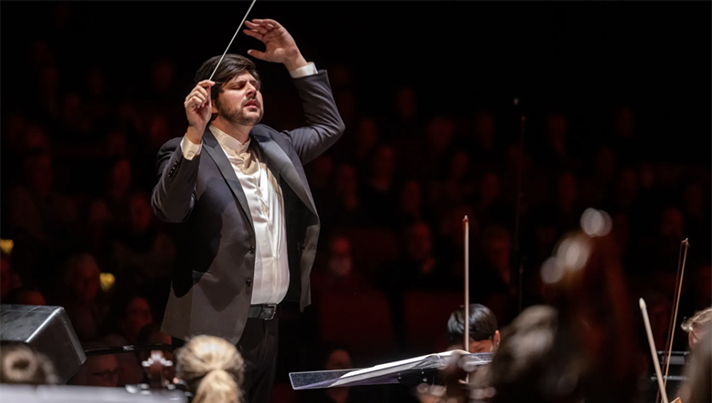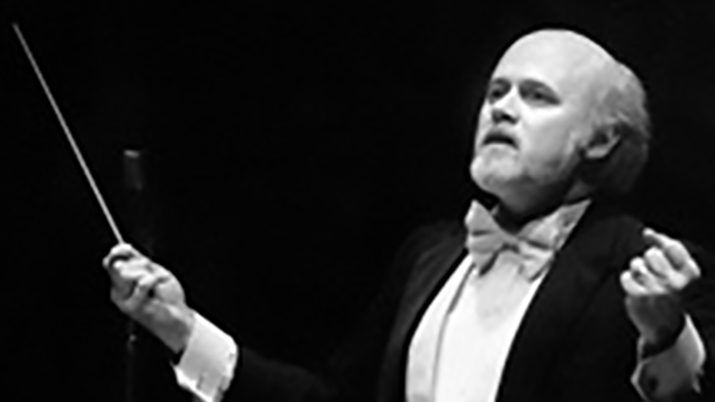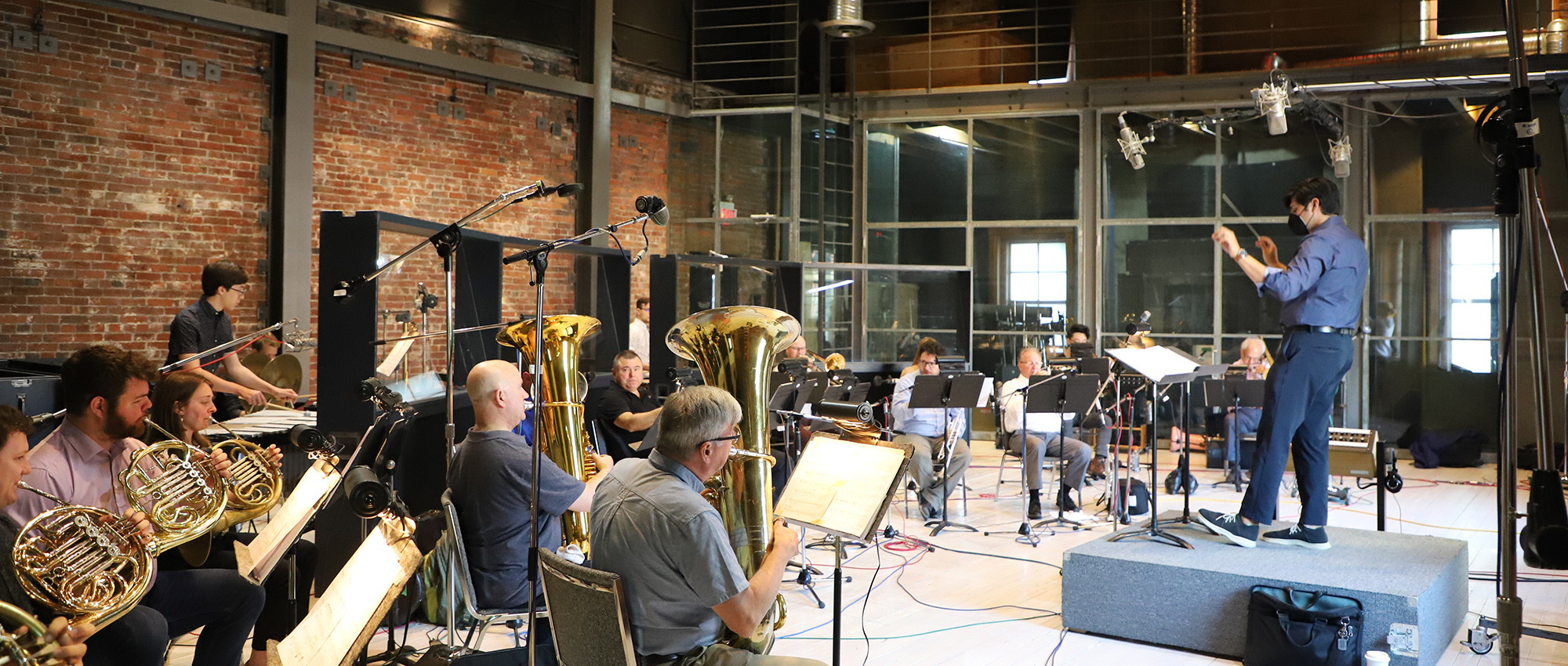In their new play The Queen in Me, soprano Teiya Kasahara (BMus’07) reimagines one of opera’s most iconic villains — and challenges the industry’s centuries-old prejudices
By Tze Liew
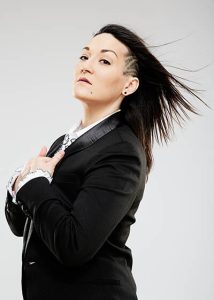

Soprano Teiya Kasahara
For more than two centuries, the iconic Queen of the Night from Mozart’s Die Zauberflöte has been thrilling audiences with her vengeful spirit, bloodthirsty drive, and volatile high Fs. Qualities that make her the ultimate villain, fated to eternal doom while the hero and heroine, demure as lambs, skip off to enjoy their happy ending.
But now it’s 2020 — and she’s sick of following the script. What if the Queen of the Night could actually tell her own story?
This is the idea that inspired soprano Teiya Kasahara (BMus’07) to create their groundbreaking new play The Queen in Me — tackling the prejudices that have been part of the opera industry since Mozart’s time. As a queer, non-binary Japanese-Canadian who’s tired of stuffing themself into the ill-fitting shoes of femme fatales and simpering heroines, they are determined to tell new stories that reflect real people, with complex identities.
“I wanted to give the Queen of the Night a voice. I had to tell her story — and then tell mine,” says Kasahara.
In The Queen in Me, the Queen of the Night begins to sing her most iconic aria, “Der Hölle Rache,” like she would in any Magic Flute show. But midway through, she halts. “Stopp! Stopp die Musik!” she screams. Breaking the fourth wall, she laments the stifling act everyone’s come to see; one she’s been trapped in for over two centuries. With unbridled honesty, humour and spirit, she begins to unravel the dark side of the opera industry: how it has stereotyped and oppressed many women like her — Turandot, Lady Macbeth, Medea — and all the opera singers who have embodied these roles.
Kasahara has always felt a special connection with the Queen of the Night. It was “Der Hölle Rache” that made them fall in love with opera at age 15, after seeing Ingmar Bergman’s film version of The Magic Flute. “I saw her perform and was like, Oh God, I want to do that,” they remember.
WATCH: The Queen in Me trailer
With this as their dream role, Kasahara dove headfirst into voice training, made it into the UBC Opera program, and honed their craft for four years under the tutelage of Prof. Nancy Hermiston — with the intensity and drive of an ambitious Queen. “I poured all of my energy into becoming the best singer, actor and stage animal I could be,” says Kasahara. “It meant that I didn’t get as much of a well-rounded life experience at university, but it made me very successful.” Fresh out of the program, they were recruited by the prestigious Canadian Opera Company. Everything seemed to be falling into place.
But when Kasahara finally got to play their dream role as the Queen of the Night — countless times in fact — they realized it wasn’t what they’d hoped for.
“Every time I played this role, it was just kind of dismissed and glazed over. I was told to be more evil, be more sexual, be more of these two dimensional qualities,” says Kasahara.
Navigating through the opera industry, Kasahara subconsciously whitewashed themself, being half-German: anglicizing their name, trying to pass as an ambiguous ethnicity, or making use of their exoticism to be able to play different roles.
“I’ve been told to my face: ‘Oh, you look sort of Asian, but not exactly. You could play someone who’s like, Spanish or Mediterranean-looking.’ It’s very objectifying, the way in which directors, agents and people in power in the industry look at singers,” says Kasahara. “We’re like little puppets, constantly made to serve these really old hetero, racist, colonialist, elitist narratives.
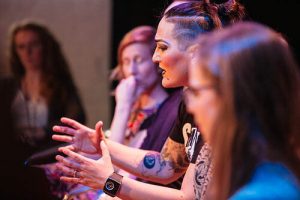

Teiya Kasahara
Kasahara reached a point where these roles were beginning to take over their life and identity. They had a light lyric coloratura voice, but not the chirpy persona and dainty, curvy body associated with the voice type. Why aren’t you a bubbly person if you’re a coquette or soubrette onstage? people would comment. You don’t look like one. You don’t act like one.
“I had to confront that there was a disconnect between the way the world saw me and the way I saw myself, and that I didn’t know who I was anymore,” says Kasahara. “I needed time to explore and figure out what my values were. That I was gay, that I was queer. That sexuality and gender are not binaries. That our cultural or ethnic heritage is not clear cut.”
So Kasahara left the Canadian Opera Company — changing paths from a professional journey to a personal one. They came out of the closet. They made a conscious attempt to dig deep into their roots, studying Japanese for a year, and connecting with long-estranged relatives in Japan. They took up taiko drumming with Toronto’s Raging Asian Womxn Taiko Drummers. They turned to Buddies in Bad Times Theatre: the largest and longest-running queer theatre in the world, hoping to try out a new creative vein. And there, on the fertile ground of experimental, multidisciplinary theatre, The Queen in Me was born, with the help of director Andrea Donaldson.
“Performing it felt amazing and terrifying all at the same time. Like when you’re the most honest and vulnerable, it’s super, super scary, but also super cathartic and rewarding,” says Kasahara. “You know it’s worth it, when a work really gives focus and meaning to everything that you’ve gone through so far.”
And the best part? The audience loved it.
“People were laughing hysterically. My friends and colleagues were crying, because they really felt that there was something really powerful there. A colleague told me, ‘You’re saying everything that we all are thinking and want to say but are too afraid to say.’ And that was really powerful for me to hear. To know that I have to keep doing this and honouring my truth.”
Since that successful pilot run in 2017, Kasahara has been making huge waves in the indie opera and theatre scene. They started the Queer AF Collective, a theatre residency program with fellow artists from Buddies in Bad Times. They co-founded a new opera company, Amplified Opera with stage director Aria Umezawa, to give voice to underrepresented artists. They are working on a larger-scale production of The Queen in Me, set to premiere this year — complete with a chamber orchestra to enhance the operatic experience.
And there’s a new show in the works as well — Yoru no Jo-ou (夜の女王), that is, The Queer of the Night. It’s an exciting fusion of opera, taiko drumming and theatre, which will explore the binaries that Kasahara holds within them: the Japanese and German, the masculine and the feminine, the taiko and the opera.
“Taiko is a huge umbrella term that encompasses different forms of Japanese drumming,” Kasahara explains. “It evolved in North America, post-World War II as a way to create community and cultural pride for Japanese Americans and Canadians after all the war atrocities they lived through. There’s also a huge predominance of queer women taiko players. It’s really exciting to see people using the drum to reclaim their power, like a big voice that they can express through.”
On top of all this, Kasahara has launched an eclectic new voice studio, The Vocal Dojo, where they teach vocal performance and techniques for wellbeing: from singing to public speaking to reiki, a Japanese technique for stress reduction and relaxation. It’s a lot. “I’m actually trying to reassess my life and be like, I need to take more breaks and find more balance,” they admit, laughing. “The past year and a half has been really, really, really crazy.”
Nevertheless, they are thrilled to be creating new artistic opportunities, and to have found a home among other indie artists who are working to change the landscape of opera. Kasahara has come full circle to the Queen who inspired it all — just by looking within.
“Everyone has a unique experience and relationship with their heritage, and it’s important to explore that, to give it space to grow as a real living thing,’ says Kasahara. “Try your best to go slow, experiment, take in the experience, and find the joy in the process. Acknowledge that there is a lot of precarity and fear of the unknown — but that’s the beauty of it. To be able to slow down and be okay with not knowing is a gift.”
Images courtesy of Teiya Kasahara
WATCH: Kasahara performs “O mio babbino caro” from Puccini’s Gianni Schicchi as part of #19forCOVID19
